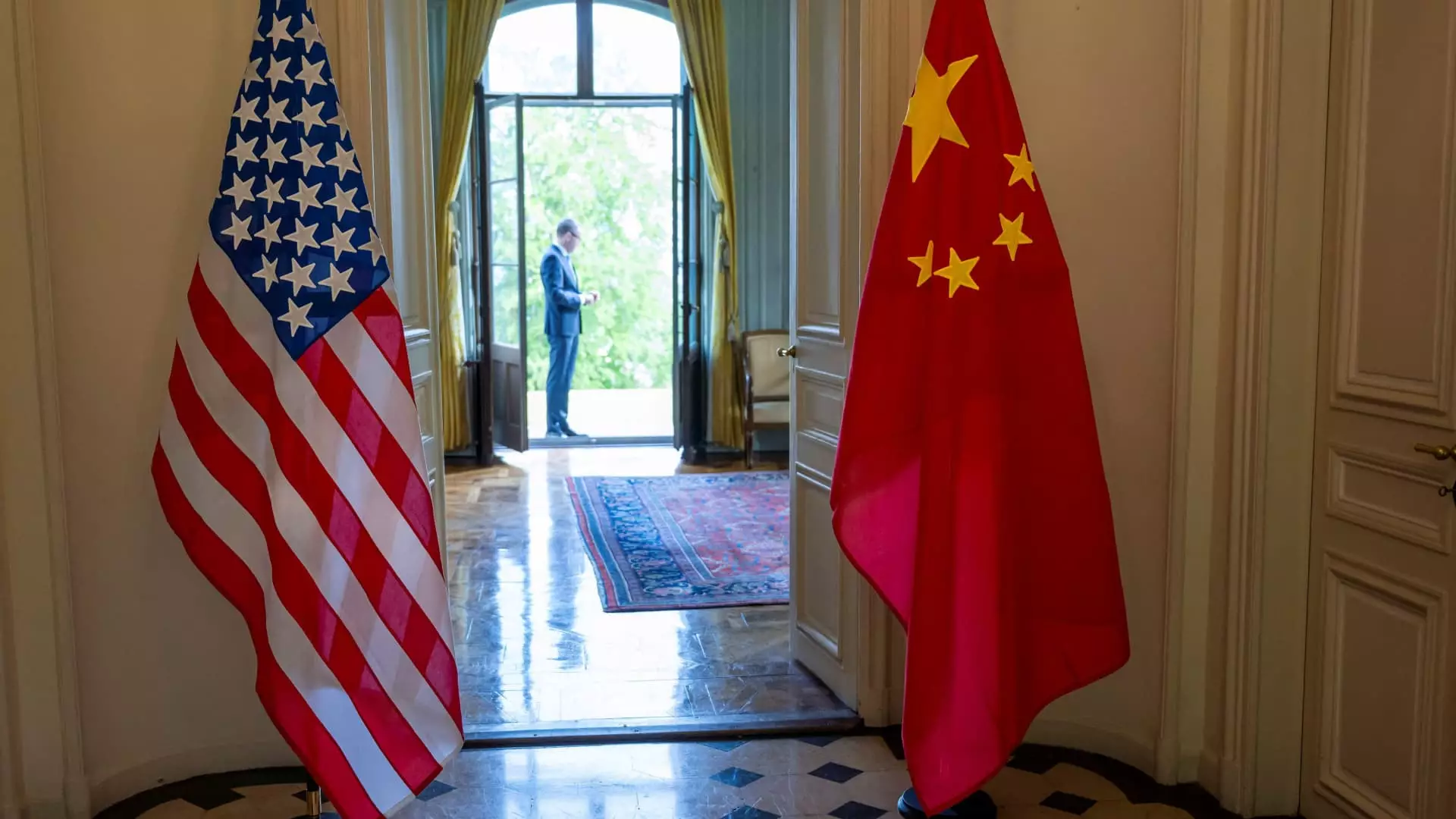In the current geopolitical climate, the U.S.-China trade relations reflect a complex and fragile web of interactions that are in disarray. With diplomatic conversations at a standstill, the need for direct communication between the two nations’ leaders has never been more urgent. This sentiment was emphasized by Treasury Secretary Scott Bessent in a recent interview where he lamented the stagnation of ongoing discussions. The underlying implications suggest a deepening divide that could negate any progress made in trade agreements. It’s troubling to witness how these two economic powerhouses continue to engage in a protracted game of brinkmanship instead of collaborative negotiation.
The tension reached a boiling point last month, highlighting the precarious nature of global commerce as both countries grapple with unmet expectations. The agreement established in Switzerland aimed to de-escalate trade hostilities, offering a temporary reprieve by rolling back tariff hikes for three months. However, the outlook remains grim. The essential question lingers: can these nations create a sustainable dialogue as they navigate the tumultuous waters of economic nationalism? Historically, the bilateral talks have been fraught with miscommunication and mistrust, leading observers to question whether either side is genuinely committed to constructive engagement or if they are merely posturing for public opinion.
Power Plays and Perils: The Role of Leadership
The dynamics at play between President Trump and President Xi Jinping shape this fragile relationship. Their previous interactions, particularly the last phone call they shared in January, serve as a reminder of how little substantive progress can be made without strong leadership and accountability. When global leaders fail to communicate effectively, it undermines the possibility of reaching consensus on critical issues. While Trump’s recent expressions of interest in a dialogue with Xi suggest a willingness to engage, analysts are skeptical about a fruitful outcome. This skepticism is amplified by the fear of unexpected provocations from the U.S. during any potential exchanges.
Moreover, the persistent tech restrictions imposed by the U.S. serve as a substantial barrier to smoother negotiations. The White House’s decision to enact controls on Chinese chip exports fosters animosity rather than cooperation. This hostile approach undermines the notion of diplomatic dialogue and presents an adversarial image on the world stage. China’s response, underscored by its Ministry of Commerce’s urging for the U.S. to amend its “wrong practices,” only highlights the opaque communication and lack of mutual understanding between the two countries.
The Unraveling Narrative: Consequences for Global Trade
As the trade battle escalates, one must consider the broader implications for global economic stability. The ultimate tragedy lies in the targeted geopolitical strategies that disrupt the livelihoods of ordinary citizens rather than achieving their purported goals. The decision to revoke visas for Chinese students by the U.S. government compounds this tragedy, leading to self-inflicted isolationist policies that alienate potential allies and strain educational ties. The Chinese Ministry’s response, characterizing this move as “fully unjustified,” reflects exasperation over a series of U.S. actions that appear reactionary rather than strategic.
This retaliatory cycle endangers not only bilateral relations but the entire network of global trade. Key industries in the U.S. rely heavily on cooperation with Chinese manufacturers for supplies, and vice versa. A shrinking circle of trust can lead to dire economic consequences worldwide, given the intertwined nature of economies today. For those of us who hold a center-left liberal viewpoint, it raises the alarming prospect that short-term political gains are being prioritized over long-lasting economic partnerships.
In an atmosphere characterized by distrust and suspicion, it is essential to ask: are both nations willing to make the compromises necessary for fruitful collaboration? The last thing the world needs is to witness an escalation of trade barriers that echo the old-school isolationism of the past. This bantering may highlight national pride, but it ultimately fractures the very collaborations that facilitate global growth and progress. In navigating this challenging terrain, a return to understanding, empathy, and honest negotiation must prevail if we are to escape the self-destructive tendencies dominating U.S.-China relations.

